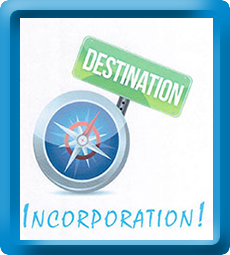Are You Certain of Your Answer?
 Author: Keith Huggett
Author: Keith Huggett
If you are an owner of a small or medium sized business, you may think you are certain of your answer. But for most of us, the answer is often "No, I am not certain of my answer." The reason for this is because we often hand over the controls to our financial department to what we consider to be our "financial staff" which consists of one or two trusted individuals and never think twice about it. This can lead to employee theft. We're not saying that it always will, just that it can. Like everyone else, we like to look on the bright and shiny side of life too, and hope that the people we work with are honest and dependable, but you never know what can happen. Sometime life throws you something bad, and people are driven to desperate measures. So today, we have some tips for you that may help you prevent employee theft.
- Match up your client payments to your client invoices.
- Call your clients to make certain that payments haven't been sent that haven't been credited against their account.
- Use an expense account for each employee.
- Use online banking.
- Don't share passwords.
- Watch for dates being changed on transactions.
- Keep track of inventory by holding random inventory checks.
- Keep complete vendor records. Collect W-9s from each vendor prior to making payments to them. Having complete W-9s is a good policy for tax time as well, as you may need this information at the end of the year should you need to send out 1099s.
There are many more tips and tricks to keeping track of the employees handling your financial data. For more in depth information, you can download this free whitepaper To Catch A Thief, Is Your Bookkeeper Stealing? Because small businesses are just that, small, they often lack the large financial staff and sophisticated controll systems inherent with large companies which makes it easier for employees to steal. The United States Chamber of Commerce estimates that $50 billion dollars are lost annually to employee theft. The FBI arrested 21,300 people in 2012 for embezzlement.
If you are concerned about the numbers shown above, and you suspect that maybe you have encountered theft in your office, now is the time to act. The bookkeeping specialists at The Tax Office, Inc. can help you. We specialize in outsourced bookkeeping, where you will have 24/7 access to your financial data. Contact us today.

 Author:
Author:  Author:
Author:  Author:
Author:  Author:
Author: 
 Author:
Author:  Author:
Author:  For many companies, growth comes with forming a business partnership. Combining forces with another individual or company that complements your strengths and weaknesses is an excellent way to expand quickly and with less capital. However, no matter what business path you decide to take, having a strong business plan in place is critical. Consider it a road map to success. A solid
For many companies, growth comes with forming a business partnership. Combining forces with another individual or company that complements your strengths and weaknesses is an excellent way to expand quickly and with less capital. However, no matter what business path you decide to take, having a strong business plan in place is critical. Consider it a road map to success. A solid  Starting a new business is a tremendous challenge. You have to design and create products and/or services, establish a brand, find customers, fill orders, etc. You also need to figure out what you spend and what you take in, maintain a positive cash flow, perhaps deal with payroll and certainly manage your
Starting a new business is a tremendous challenge. You have to design and create products and/or services, establish a brand, find customers, fill orders, etc. You also need to figure out what you spend and what you take in, maintain a positive cash flow, perhaps deal with payroll and certainly manage your 


